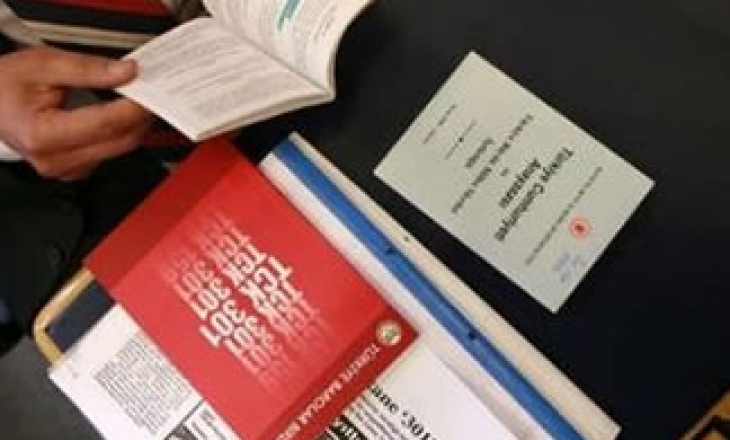Turkey's president has approved an amendment enhancing free speech. President Abdullah Gul signed the amendment Wednesday, according to Anatolia news agency. It changes a law restricting free speech that had been used to prosecute many intellectuals, including Nobel laureate Orhan Pamuk.
Turkey's parliament approved the amendment to Article 301 of the penal code last week. The president had to provide final approval before the amendment could take effect. The reform to article 301 of the penal code was published in the Official Gazette and took effect on Thursday.
The reform makes it a crime to insult the Turkish nation, rather than Turkishness, and the justice minister's permission will be required to open a case. The maximum sentence is cut to two years from three.
The European Union has said easing restrictions on free speech is a test of Turkey's commitment to political reform as Ankara looks to advance slow-moving membership talks which began in 2005.
Article 301 has been used to bring hundreds of people to trial, including Nobel laureate Pamuk and journalist Hrant Dink, since it was introduced three years ago. Between July and September 2007, 22 charges were laid under Article 301, mostly against journalists, according to ARTICLE 19.
International Freedom of Expression eXchange (IFEX) members, including Turkish groups IPS Communication Foundation (BIANET) and the Initiative for Free Expression (Antenna-TR), as well as ARTICLE 19, International PEN and the International Publishers' Association, have long argued that the article should be repealed in full as it represents an illegitimate restriction on freedom of expression as guaranteed by international law.
"Article 301 is inherently offensive to the right to freedom of expression and should simply be repealed in its entirety," said ARTICLE 19. "It seems clear that the recent tinkering with Article 301 is aimed at improving Turkey's image abroad, particularly with the European Union, rather than addressing the real problems with this provision."
In February 2007, in the wake of Dink's murder, 41 national and international organisations active in the field of freedom expression signed a joint statement calling for the repeal of Article 301. International PEN is monitoring the trials of 25 writers, journalists and publishers under Article 301 who have written on issues ranging from criticism of the Turkish armed forces, to references to a genocide against Armenians a century ago.
IFEX members are also calling for the repeal of other laws that are being used in Turkey to put writers, journalists and publishers on trial or to imprison them, including Law 5816, which criminalises "insulting the memory of Atatürk", or certain articles of the Anti-Terror Law.










